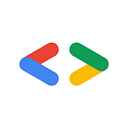DSC Berkeley Demo Day — Solution Challenge 2020 💡🌎
In this special edition for the Demo Day of the DSC Berkeley I’m going to share about How participants of the Solution Challenge 2020 can Build and Publish Actions for The Google Assistant.
Once you have identified and fully understand the problem that you are trying to solve for your community (users), now it’s time to start thinking about the solution, designing your interface and chose your technology stack.
For this workshop we are going to focus on how you can help solving some of your local communities challenges through Voice technology. Some of the main benefits of using Google Assistant is the exponential adoption from users around the world with the service, reaching a Billion users in multiple devices, such as Smart Speakers, Cars, Smart TV, wearables, smart displays, Smartphones and even legacy phones. Also the voice technology is becoming a game changer in the industry, by allowing users interactions through a voice interface, the most natural way of human conversation.
For this post we are going to address a local challenge of Universities Students in California on How to connect with a social group that share their passions or hobbies, so we built an Action that help the Students to find Meetups, Study groups and Mentors in topics like Technology, Business, Workout, Culinary, and we called it “Ber the social guide.” So, Hey Google, Let’s start! 🏁
- Go to the Github repo: https://github.com/leoaiassistant/DSCBerkeley and download DSCBerkeley_DemoDAY.zip file.
2. Now go to your project in Dialogflow console: http://console.dialogflow.com/
3. At your console RESTORE the project with the zip file.
4. The project includes the intents; 'meetups'; 'mentors'; 'studygroups';
5. <Add> = ‘[>20&&<=2000]’; training phrases per Intent, for example on 'meetups'; 'When is the next tech meetup in San Francisco' 'How many Startup meetups are going to be next week in Silicon Valley', 'When there is a workout meetup near me' and in the intent'studygroups'; 'I'm looking for a Tech Study Groups’ 'Tell me more about Neuroscience groups' 'Set an alert for Data Science workshops'
6. The project has the Entities (Text Classifiers); social guide and topic which allow our action to create a decision tree based on the topics of interest of the users.
7. Define training phrases and the Action invocations types: 1) Explicit invocations: occurs when users tell the Assistant that they explicitly want to use your Action by it’s given name. 2) Implicit invocations: occurs when the Assistant chooses to invoke your Action without users calling it by name.
On this action, specify intents that include training phrases such as 'Hey Google, ask Ber The Social Guide when is the next Hackathon in San Francisco' it would trigger a“deep-link” action in the app, allowing users to invoke by specific functionality.
8. Now let’s try the action, go to the integrations section of the Dialogflow console, click on the Google Assistant integration settings <add> Specific intents that are triggered when users request the app by name;'meetups'; 'mentors'; 'studygroups';
9. Publish your action in the Google Assistant directory; For this step you need to add: Short and Full description about your action, Sample invocations, Small Logo, Developer name and email, Terms of Use and Privacy Policy for your Action, chose a category and other optional settings.
Also you need to provide the Location targeting, surface capabilities, company details, Brand verification (such as sites, Android apps) in order to enable cross-platform functionality,
11. Beta & Alpha Testers, Release and App Review: Once your action is Tested you are ready por Production and you can submitted for Review:Then you’ll receive an email with the complete review.
12. Policies and guidelines: You read the launch checklist, which outlines key policies and guidelines.
Now you are ready to keep training your Action and integrate with external APIs such as Google Calendar, Sheets, among many others, and also you can add new channels to your agent such as Messaging Apps.
DSC Berkeley Demo Day — Solution Challenge 2020 Slides:
Workshop 📍UC Berkeley, Hearst Memorial.
DSC Berkeley Demo Day — Solution Challenge 2020
DEMO TIME: Kavya Marrapu, Data Science Student at UC Berkeley, introduce us to her action Moody that can helping during a bad humor day an order ice cream for you, share professional contacts or send you lovely content.
//Disclaimer: Opinions are my own, not of the company or their programs. Each Google Developers Expert is fully responsible for their services, and is not affiliated with Google nor do they offer services on behalf of Google. Customers are fully responsible for their use of services, if any.//

